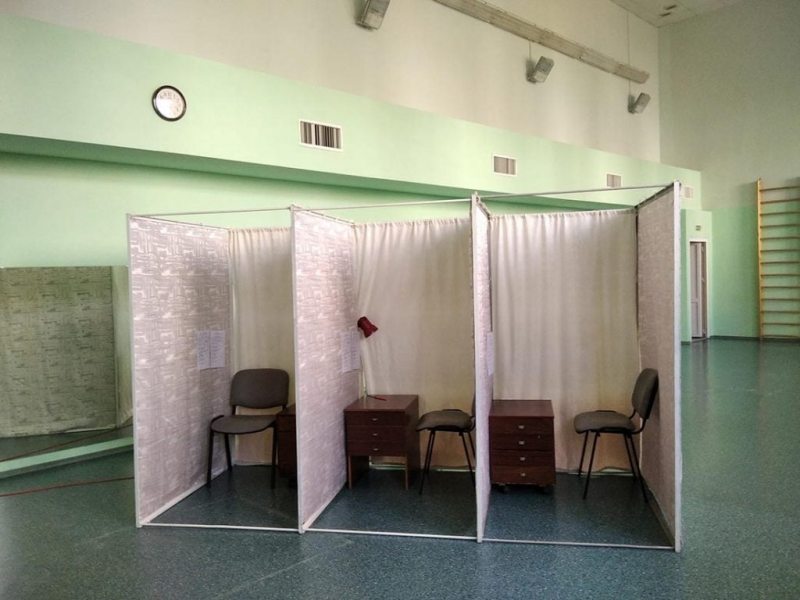No ballot secrecy: Polling booths without curtains and heavy police presence announced for referendum
According to the Central Election Commission (CEC) Chairman, police officers and police volunteers will ensure public order at the polling stations. They will be present at the polling stations both on the main day and at the early voting. In addition, according to the Manual for members of precinct election commissions, “in order to prevent the risks associated with the spread of coronavirus infection, the use of a front curtain in polling booths should be eliminated.”
Lawyers of the “Human Rights Defenders for Free Elections” campaign analyzed the recent statements of the chairman of the CEC as well as some points of the Manual for Precinct Commissions and concluded that the principle of free expression of will cannot be fully implemented without observing the principle of secret ballot. Thus, the absence of curtains in the booths and the presence of police officers and volunteers at polling stations violate the principles of free and secret voting.
According to Article 76 of the Constitution of Belarus, referendums are held by universal, free, equal, and secret ballot. However, open booths significantly affect the freedom of choice, since a person does not feel safe in them for the following reasons:
- The open voting booth is easy to look into and a passing person can see which option the voter has ticked. This can restrict the freedom of choice both of the person in the booth and of the passing voter.
- The presence of police officers and police volunteers at the polling station may give a voter the impression that they is being watched and may be detained after leaving the booth for a “wrong” choice.
Since the principle of free voting is also the ability to make decisions independently without any influence and/or interference, booths without curtains and the police presence at the polling station do not comply with this principle.
According to the OSCE Office for Democratic Institutions and Human Rights' Election Observation Manual, the polling booth is the place where voters mark their ballots in secret. The polling “booth” could in fact be a “voting screen”, set up to ensure voters are able to mark their ballots in secret. Inadequate voting equipment, such as polling booths and voting screens does not ensure the secrecy of the vote.
As noted in the Handbook on the Legal, Technical, and Human Rights Aspects of Electoral Matters, the secret ballot is a long-established mechanism for insulating voters from intimidation. The requirement for voting by secret ballot is based on the Universal Declaration of Human Rights, which states that elections “shall be held by secret vote or by equivalent free voting procedures” (Article 21, paragraph 3). The International Covenant on Civil and Political Rights further develops this provision and strongly states that elections “shall be held by secret ballot” (Article 25 b). This norm derives from the international community's conviction that in order for elections to be truly free, the relevant procedure must guarantee that how any voter votes, or will vote, is one’s absolute privilege.
Therefore, the principle of the free expression of the will of the electors cannot be fully realized without respect for the principle of secret ballot and the absence of curtains in the booths and the presence of police officers and volunteers at polling stations violate the principles of free and secret voting.
"Human Rights Defenders for Free Elections"


